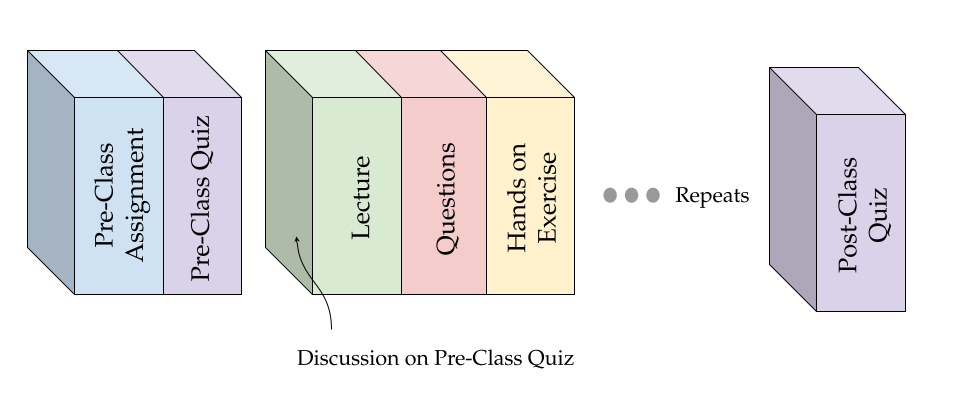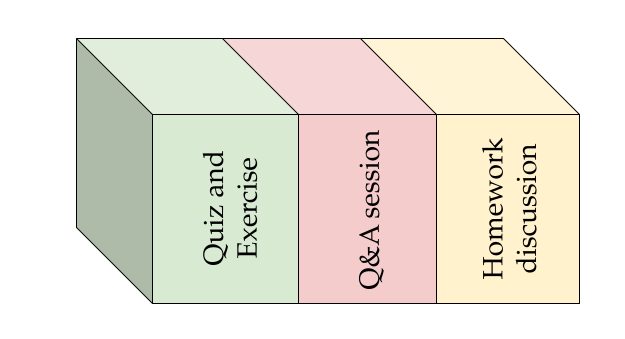Statistics. Math. Computer Science. Physics. Long ago, the four disciplines lived together in harmony. Then, everything changed when the Computer Science attacked. Only a master of all four elements, could stop them, but when the world needed it most, it was not invented. A few years ago the world discovered the new master, a scientist called data scientist, a master of all four elements.
Welcome to AI-1. The objective of this module is to provide fundamental understandings of machine learning models and get you working with the basic concepts of ML and AI.
You will start with the basic regression models (KNN, Linear, Multi, Poly), classification models (kNN, Logistic) and then move on to more advanced concepts like Bagging and Boosting. Along the way, you will operationalize the key concepts of machine learning: picking the right complexity, preventing overfitting, regularization, and model evaluation.
At the end of this module, you will be able to run basic and advanced machine learning models, and tell how well they are performing.
This page introduces you to the team, the basic instructions, the schedule and various elements of our class.
The Team
Dr. Pavlos Protopapas

- Scientific Director of the Institute for Applied Computational Science (IACS).
- Teaches Introduction to Data Science (CS109a), Advanced Topics in Data Science (CS109b) and Advanced Practical Data Science (AC215).
- He is a leader in astrostatistics and he is excited about the new telescopes coming online in the next few years.
You can read more about him here.
Harsh Vardhan

- Harsh is currently studying productionizing AI with Univ.AI.
- He is passionate about intersection of sustainable technology and AI.
Vishnu M

- Vishnu is a Computer Vision enthusiast and Teaching Assistant at Univ.AI. Currently, he is in the final year of Computer Science Engineering at JECRC University, Jaipur.
- Recently, he was a Research Intern at a healthcare startup where he worked on developing and deploying algorithms for medical image analysis and segmentation.
Anshika Gupta

- Anshika is a deep learning enthusiast currently a final year undergrad at JECRC University, Jaipur.
- Previously, she was a Research Intern at a healthcare startup where she worked on developing algorithms for medical image analysis and segmentation.
- When not studying, she can be found writing prose and poetry while sipping a cup of coffee.
Kuldeep Prasad

- Dr. Kuldeep Prasad works as a Research Scientist at the National Institute of Standards and Technology.
- His research interests include application of Machine Learning for modeling the spread of forest fires as well as understanding the effects of climate change.
- Dr. Prasad wants to accelerate the application of Artificial Intelligence to solve some of the world’s biggest challenges as well as using AI for social good.
Meghana Sarikonda

- Previously worked as a freelance full stack developer
- Fascinated about AI and it’s ability to solve complex problems
Vishal Balaji

- Currently working as a Machine Learning Engineer at a voice AI startup
- In my free time, I like to trek, read sci-fi and history books
The Coursework
We have very carefully designed the coursework to give you, the student, a wholesome learning experience.
Each week shall include:
- 2 Sessions
- 2 Labs
- Office hours
Session - What to expect

The course includes two 1.5 hour sessions per week. Before the session begins, students are expected to complete a pre-class reading assignment and attempt a quiz based on the same.
A session will have the following pedagogy layout which will be repeated three times:
- Approx. 15 minutes of live online instruction followed by approx 15 minutes of Q/A + Quiz + Exercises.
- Sessions will help students develop the intuition for the core concepts, provide the necessary mathematical background, and provide guidance on technical details.
- Sessions will be accompanied by relevant examples to clarify key concepts and techniques.
After the session, students are expected to complete a short post-class quiz based on the principal concepts covered in class.
Lab - What to expect

A lab is a TA driven 1.5 hour session that is divided into 3 major parts.
-
Each lab begins by revisiting the quizzes and exercises done in the previous lecture session.
-
After discussing exercises, we will have a semi-formal Q/A session. All doubts pertaining, but not limited, to the previous session, and homeworks are welcome.
-
The last part of the labs deals predominantly with the upcoming homeworks. It is directed towards giving a brief overview of the homework problem. We will discuss some code to help you get started.
Course Content

The Class
Welcome Session - Preparing for this class
There will be a Welcome Session scheduled on 09 January 2022 at 7:00 PM IST for all registered students.
Please check your mail for more information.

Lecture Sessions:
- Tuesday Series: 9:30 PM - 11:00 PM IST [ 11:00 AM - 12:30 AM EST]
- Saturday Series: 6:00 PM - 07:30 PM IST [ 07:30 AM - 09:00 AM EST]
Lab Sessions:
- Wednesday Series: 9:30 PM - 11:00 PM IST
- Sunday Series: 6:00 PM - 07:30 PM IST
Office hours:
- Mondays: 9:30 PM - 10:30 PM IST
Course Pre-Requisites
Your are expected to have a working knowledge of python, along with these three libraries:
- Numpy
- Pandas
- Matplotlib
All exercises in this course will be done in jupyter notebooks.
Note: No prior knowledge of machine learning libraries is necessary for this module
In addition to this, you are expected to know the material covered in our pyDS course.
Before you begin the course, we have prepared for you a simple exercise to ensure your proficieny of the above libraries.
This will help you assess your preparedness for the course, and will also help you familiarize yourself with the platform.

Please find a more detailed summary of the pre-requisites for this program here.
Diversity & Inclusion
We actively seek and welcome people of diverse identities, from across the spectrum of disciplines and methods since Artificial Intelligence (AI) increasingly mediates our social, cultural, economic, and political interactions [1].
We believe in creating and maintaining an inclusive learning environment where all members feel safe, respected, and capable of producing their best work.
We commit to an experience for all participants that is free from – Harassment, bullying, and discrimination which includes but is not limited to:
- Offensive comments related to age, race, religion, creed, color, gender (including transgender/gender identity/gender expression), sexual orientation, medical condition, physical or intellectual disability, pregnancy, or medical conditions, national origin or ancestry.
- Intimidation, personal attacks, harassment, unnecessary disruption of talks during any of the learning activities.
Reference:
[1] K. Stathoulopoulos and J. C. Mateos-Garcia, “Gender Diversity in AI Research,” SSRN Electronic Journal, 2019 [Online]. Available: http://dx.doi.org/10.2139/ssrn.3428240.
Logistics - What you need to begin?
We assume you have a Univ.AI account, created when you signed up at courses.univ.ai. If not, email programs@univ.ai.
Education software we use
- Our lectures and labs are carried out via Zoom (install instructions).
- Quizzes & exercises will be conducted on the digital learning platform Ed.
- Ocassionally, we may conduct in-class contests on kaggle. Please register on kaggle and familarize yourself with it, if you haven’t already done so. This is a short video that will help you learn how to use kaggle.
All exercises and homeworks in this course will be done in jupyter notebooks. This link will help you setup jupyter lab and get you acquianted with jupyter notebooks.
Our module policies around collaboration and grading are listed here. Our expectations of you are also laid out in that document.
Parting note
As you will learn in this course, data science is not just about writing efficient algorithms.
It requires proficiency in critical thinking, ideation & presentation, along with strong foundations in statistics, computer science & mathematics.
Keeping that in mind, you are adviced to give your full active attention to every session, homework & exercise.
We wish you best of luck for your data science journey.
